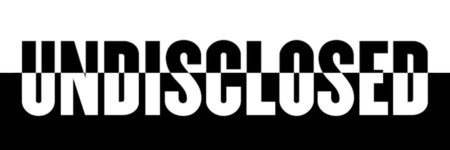The past six months have been a boom time for catastrophe coverage, the election edition of which has featured a torrent of tales about the Trump Swamp and its exceedingly creative accountants. The Heist, a limited-run investigative series—the first podcast from the Center for Public Integrity, a non-partisan non-profit investigative journalism organization—slots neatly into this topical and critically important trend. In five episodes, The Heist takes us from the Trump administration’s campaign promises in 2016 to the unfolding bathos of its pandemic aid. “Right from the handouts to the bailouts,” as its co-executive producer Mei Fong puts it.

For Fong, a veteran journalist who won a joint Pulitzer for her coverage of China for the Wall Street Journal, the foray into podcasting served two purposes: first, to use podcasting’s emotive storytelling to enliven the drab world of taxation, whose policy details tend to make “people’s eyes glaze over, though at the same it’s so emotive; it’s money in our pocketbooks.” In other words, she set out to “make one of the most unsexy topics sexy.” Second, the podcast aims to complement reportage that fixates on Trump’s income tax returns. “People are all agog reading about it,” she says. “But at the same time, he’s shaped the kind of rules that determine how much we pay. That’s so much more important, though it maybe doesn’t strike people as being that way because we tend to be more interested in the individual than in systems.”
Through five episodes, The Heist lays out, in gory infuriating detail, just how “the US president who may have paid the least in taxes is also the one who has shaped the most consequential tax reform in three decades.” The driving question that propels the series, Fong says, is: “How come so much money ends up with rich corporations or wealthy individuals, not ordinary people?” Or rather, “Why do the rich get richer, and the poor get audited?” Zooming out to the larger picture, as sketched out in the course of the series, it becomes clear that Trump taxation policies have benefited the wealthiest and left the poorest and most vulnerable behind, exacerbating the country’s already vast economic inequality.
These questions and concerns are of urgent importance, against the backdrop of an increasingly ugly, and historically consequential, election. So it’s not surprising that The Heist, which only launched last month, has already generated quite a bit of buzz. Its reporting has been showcased by other podcasts concerned with vivid economics storytelling, such as Planet Money, as well as some of the shows that have long been spelunking the depths of the Trump administration’s dodgy dealings, including Slate’s Trumpcast, which dedicated an entire episode to discussing a Heist episode last month. The Guardian’s radio critic Miranda Sawyer recently featured it in her Week in Radio column, calling it “a revelatory show, easy to understand and very listenable.”
From handout to bailout
The Heist’s approach combines personality-driven storytelling with the crisp accessible analysis of daily news podcasts. What sets it apart from other swamp dispatches is that it doesn’t fixate on what Trump got up to on a balcony or on Twitter this past week. “It’s the arc of one story, one angle: tax policy,” says Fong.
“And then the pandemic hits!” says Fong. “And they go back and ask for more bailouts.”
The first episode uses the story of secret donors to the Trump campaign, who turned off the money spigot, “The Dallas Piggybank,” until the GOP gave them what they want—the Tax Cuts and Jobs Act 2017. It slashed corporate taxes, which is why, according to previous investigations by CPI, companies like General Motors and Amazon were able to pay no federal taxes in 2018. Despite its backers’ claims that the bill would “pay for itself,” Fong says economists thought it was “strangely put together, had many loopholes, didn’t deliver a lot of its promises, and would leave us with a 2 trillion-dollar deficit in two years.”
The second episode charts the rise and of Treasury Secretary Steve Mnuchin, the face of the Tax Bill, who is described in the episode as the man who “puts the douche in fiduciary,” while the third discusses the backroom dealing that led to a number of Senators, including Senator Bob Corker from Tennessee, who was known for his deficit-themed diatribes, to sign on to the Bill. (A situation that Nobel Prize-winning economist Joseph Stiglitz likens to “a group of pigs feeding at the trough..) It also delves into the history behind the self-serving “trickle-down economics” theory, which the GOP loves to use to justify its giveaways to corporations and the wealthy. “The claim is, they’ll turn around and invest in the economy, they’ll bring jobs to America,” Fong says. “But that’s not what most companies did. They put the money they got into share-buybacks, which raises the price of shares, benefiting the CEO and not the average worker.”
That’s precisely what happens in the fourth episode, which charts how former American Airlines’ CEO Doug Parker put his company’s tax break bonanza to use: for stock buybacks, not to pay employees a better wage, or invest in the company. Workers got a paltry one-time $1000 bonus. “And then the pandemic hits!” says Fong. “And they go back and ask for more bailouts.” By the end of September, when it became clear that further bailouts weren’t forthcoming, American Airlines proceeded to lay off tens of thousands of workers.
Print to podcasting lessons
Before settling on podcasting, Fong went about doing a recce with veteran podcasters. She came away with three solid pieces of advice: “First, I was told, find partners, build a team, because it takes a lot more work than you think!” Fong says.
Second, figure out how much time and money you can put into it. “The figures are all over the place!” she says. “Some people said it cost $100,000 a year [to make a podcast]; others told me that’s excessive, that $5000 per episode is a good target.” She was struck by the “wide band” between the hobbyist in their basement and established outfits like This American Life, which she was told drops $100,000 per episode, “which shows that the field hasn’t professionalized enough.” She had also heard that most podcasts aren’t profitable on their own. However, funding something which has “tremendous public value” fit perfectly with the non-profit ethos. Finally, most of her sources told her to steer clear of the Q and A format. “They said it’s oversaturated, and not worth doing unless your podcast features a strong personality with a large following,” she says.
In assembling a team, Fong built around the “backbone” of existing CPI veterans, which include investigative reporters, fact-checkers, and lawyers, “because lots of the people we’re talking about are very litigious!” She brought on the veteran producer and story editor of acclaimed podcast Ear Hustle, Curtis Fox, as well as Alison McAdam, the editor behind the award-winning podcast Believed. As host and co-executive producer, she brought on the journalist Sally Herships. “She has great radio experience and is also terrifically connected and understands the next part of the process,” Fong says, adding, “It’s not enough to make a great piece of radio, you have to make sure it’s heard. We’re not NPR. You have to build a podcast and the lane for distribution.”
Creative promotional approaches
Promoting the podcast is a serious priority, to which Fong applies equal parts ingenuity and aggression. This is a lesson she learned from a book she wrote, on China’s one-child policy. “I probably spent as much time getting people to read it as I did on writing it,” she says. “I used the same aggression I used as a reporter, convincing my editor, and badgering, persuading, cajoling my sources to speak to me…Nobody owes you their attention, you have to make the case for why they should listen.”
That’s how The Heist came up with its current strategy: a combination of “targeting smarts” and ingenious marketing. It undertakes collaborations—events, appearances—with higher-profile podcasts with shared interests, such as Trumpcast and Trump Inc., and conducts virtual events with well-connected domain experts with a large following, such as the economist Robert Reich, who was labor secretary during the Clinton administration. It also likes to convert existing followers to listeners through CPI’s social media promotions and its newsletter, which has about 100,000 subscribers. “And it goes the other way,” Fong adds, “You get new followers who come to you from other places.” These include planned AMAs on Reddit or Crowdcast, which the team will hold before the election, and weekly audiograms and contests.
Some of these contests are somewhat wacky. “I mean, we don’t have Apple products to give out,” Fong says. A recent contest, with Muckrock, the non-profit which helps ordinary citizens file FOIAs, gives participants who sign up for updates on the podcast the chance to put their name on public records requests they’re filing, including one suing the Small Business Association, which has refused to release data on federal Paycheck Protection Program loans. (CPI investigations have already unearthed a few egregious recipients.) A few randomly selected winners will get “FOIA-related swag” such as a framed copy of a Mnuchin-related FOIA response, and lab analysis on manure sent to Mnuchin. “It’s like, you wanna find out shit about Mnuchin’s shit?” says Fong, laughing. “It’s vaguely nerdy and plays into our wheelhouse. About 100 people already signed up in the first two weeks.”
Fong has a last pitch for any Americans still on the fence about listening to a podcast about tax policy: “Taxes are the most basic function of how your politicians work for you,” she says, “How they allocate it, whether it goes into Social Security, the military, or housing and schools. It’s your money, and if they don’t allocate it correctly, the nation doesn’t survive.”
Editor’s note: Give this episode 5 minutes; we bet you’ll keep listening. Listening to this show is not like eating your vegetables.




Comments